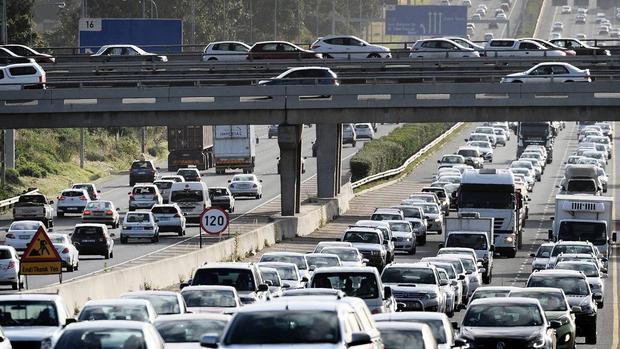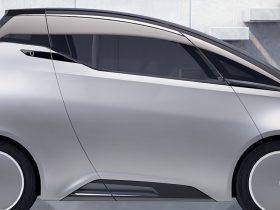By GEORGINA CROUTH
With fuel prices at their highest ever, carpooling is becoming even more enticing, on many levels: it helps us reduce our carbon footprint, contributes towards reducing time in the daily commute, saves money by splitting fuel costs and sharing parking, and lessens wear on the roads.
And, of course, there’s the fact that misery loves company, so you might as well make a new friend in traffic than suffer in silence. With millions of single occupants commuting the world over, it’s time that we ditched our addiction to solo travel and started carpooling.
Finding people to share your commute has become much easier too, with technology driving ride-sharing apps such as uGoMyWay, LocoMute, FindaLift and Jumpin Rides, which either connect passengers with empty seats, or connect drivers with the nearest available cars.
uGoMyWay, FindaLift and Jumpin Rides are ride-sharing platforms connecting drivers and commuters who are going in the same direction, allowing you to log your trip and calculate how much you need to pay towards costs. LocoMute, an alternative to vehicle owning, gives members access to cars around South Africa, taking care of fuel, insurance, parking and e-tolls.
Consider the implications
But before you start charging for rides or listing your car to share with strangers, you might want to consider the insurance implications. Have you thought about what would happen if you were involved in a crash, or your car was damaged or stolen while being “shared”? Would your insurance kick in? Could your injured passengers have a claim against you?
Of course there are always horror stories: in 2017 a reader complained about a “ride renting” company that pre-screened customers and offered insurance, but then his car disappeared, along with the customer. Months later, the reader was still fighting for the insurer to pay out. Carpooling isn’t necessarily the best option either.
Vera Nagtegaal, the executive head of Hippo.co.za, says carpooling is practicable on many levels, but drivers need to be sensible.
“The simplest way to divvy up the responsibilities is to travel in a different person’s car on different days of the week,” she said, ‘but sometimes it makes sense for one person to be the designated driver and charge the others for the cost of fuel.”

Nagtegaal warns that if you’re receiving payment, you might want to consider upgrading your insurance. “If you are using one person’s car and money is changing hands, this could potentially be seen by an insurer as a commercial transaction, especially if the money you’re receiving is more than the operating costs.
“In this instance, this could mean that your car is being used for business purposes, and you should have a different type of insurance cover – and even a special permit to be
If you’re only covering your fuel costs and possibly wear and tear, insurers are unlikely to take issue with it though. Nagtegaal says personal short-term insurance policies exclude fare-paying passenger transport, but if you’re using your car for anything other than personal use – if it’s effectively being used for business purposes – you need to update your policy. Of course you should already be familiar with the contents of your insurance policy.
She warns that if you don’t update your policy, your insurance claim could be rejected – which could cripple you financially. Exercise common sense: if you’re meeting potential carpoolers, do so in a public space, or better yet, share lifts with people you know and trust. Be very sure about the driver’s credentials – do they even have a driving licence? Is their car roadworthy and insured?
Share the load
Set the rules: state your position on lateness and eating in the car to avoid conflict. Download the Nomola app on your smart device: supported by DialDirect, the app promises to get you emergency help. Users can request assistance from public emergency services, such as the police, metro police, fire and rescue, and ambulance.
Share the load: if you only want to split the costs of driving to and from work, alternate cars.
* Georgina Crouth is a consumer watchdog with serious bite. Write to her at consumer@inl.co.za, tweet her @georginacrouth















